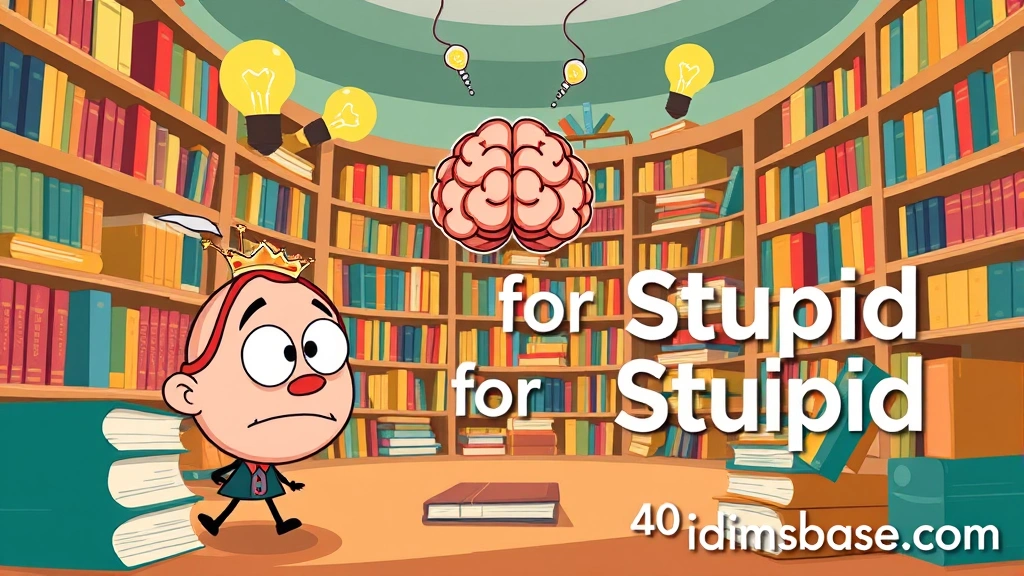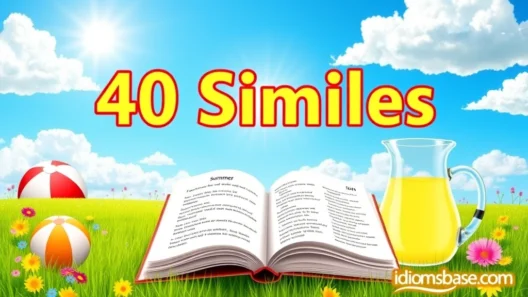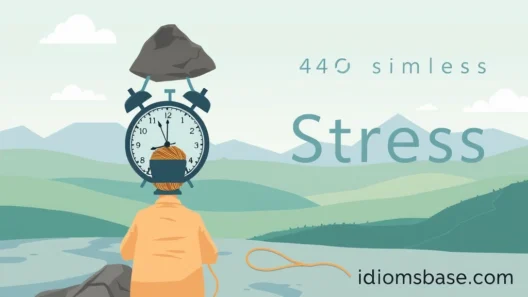Ever found yourself searching for just the right words to describe someone's less-than-brilliant moment? Or perhaps you're crafting a story and need a vivid, humorous way to illustrate a character's lack of smarts? Well, you've come to the perfect place! We're diving deep into the wonderful world of similes, focusing on those delightful comparisons that paint a picture of, shall we say, intellectual challenges. Get ready to expand your vocabulary and add some sparkle to your descriptions!
Why Similes for "Stupid"?
Similes are like little magic wands for your language. They take a simple idea and make it sparkle with imagery and humor. Instead of just saying "he was stupid," you can say "he was as dumb as a box of rocks," and suddenly, you've got a much more memorable and often funnier phrase! These comparisons help your audience instantly grasp the concept, often with a chuckle.
The Power of Comparison
Think about it: when you use a simile, you're not just stating a fact; you're inviting your reader to visualize something familiar. This makes your writing more engaging and helps your message stick. Plus, it shows off your creative flair!
40 Similes for Stupid: Get Ready to Be Amazed (or Amused!)
Here's a fantastic collection of similes to help you describe those "lightbulb moment" failures. Some are classic, some are quirky, and all are designed to add a punch to your prose!
- As dumb as a box of rocks: A timeless classic, painting a picture of utter inertness.
- As thick as a brick: Implies a mind that's solid and unyielding to new ideas.
- As sharp as a marble: Marbles aren't sharp, are they? Exactly!
- As bright as a black hole: A humorous oxymoron – the opposite of bright.
- As clever as a turnip: Turnips are vegetables, not known for their intellect!
- As wise as a goose: Geese are often seen as silly, not smart.
- As smart as a sack of hammers: Heavy, but not exactly brainy.
- As quick as a sloth: Sloths are notoriously slow.
- As useful as a screen door on a submarine: Completely pointless and counterproductive.
- As dense as a neutron star: Extremely compact and unyielding to information.
- As enlightened as a caveman: Suggests a primitive understanding.
- As profound as a puddle: Shallow and lacking depth.
- As coherent as a bowl of jelly: Wobbly and without clear form.
- As clear as mud: Confusing and impossible to understand.
- As open-minded as a brick wall: Resistant to new thoughts or perspectives.
- As insightful as a blind squirrel: Even a blind squirrel finds a nut sometimes, but it's pure luck.
- As logical as a dream: Often nonsensical and without reason.
- As organized as a junk drawer: Messy and without order.
- As responsive as a dial tone: Unchanging and unresponsive.
- As effective as a chocolate teapot: Melts under pressure, completely useless.
- As nimble as a pregnant yak: Slow and clumsy.
- As perceptive as a fence post: Lacking any ability to notice things.
- As resourceful as a broken vending machine: Unable to provide what's needed.
- As understanding as a brick wall: No empathy or comprehension.
- As imaginative as a cardboard cutout: Flat and uncreative.
- As quick-witted as a snail: Very, very slow to react.
- As knowledgeable as a scarecrow: Full of straw, not brains.
- As articulate as a grunt: Unable to express thoughts clearly.
- As innovative as a wheel: Already invented, nothing new.
- As flexible as a statue: Rigid and unyielding.
- As thoughtful as a burp: Unintentional and without consideration.
- As precise as a toddler with a crayon: Messy and inaccurate.
- As reliable as a chocolate fireguard: Fails when needed most.
- As deep as a teacup: Very shallow.
- As sharp as a butter knife: Not sharp at all.
- As wise as a potato: Potatoes are simple, not smart.
- As useful as a comb for a bald man: Unnecessary and without purpose.
- As sensitive as a rock: Unfeeling and unresponsive.
- As graceful as a bull in a china shop: Clumsy and destructive.
- As apathetic as a zombie: Lacking emotion or interest.

When to Use These Similes
These similes are perfect for creative writing, humorous conversations, or even just adding some spice to your everyday language. They can lighten the mood or emphasize a point with a bit of playful exaggeration.
A Word of Caution
While these similes are fun, remember to use them thoughtfully. Some can be quite strong, so consider your audience and the context. They're best used for lighthearted banter or fictional characters, rather than genuinely insulting someone.

Key Takeaways
- Similes make your language more vivid and engaging.
- They help readers visualize your descriptions.
- "Stupid" similes often add humor to your writing.
- Choose your simile carefully to match the tone and context.
- These phrases are fantastic tools for creative writing and conversational flair.
Frequently Asked Questions (FAQs)
Q1: What is a simile?
A simile is a figure of speech that directly compares two different things, usually by using the words "like" or "as." It's a way to make your descriptions more vivid and relatable. For example, "he ran like the wind" or "she was as brave as a lion."

Q2: Why are similes important in writing?
Similes add depth, imagery, and often humor to your writing. They help readers create mental pictures, making your text more engaging and memorable. They can also convey complex ideas in a simple, understandable way.
Q3: Can I create my own similes?
Absolutely! The best similes are often original and unexpected. Think about two things that are very different but share a common characteristic you want to highlight. For example, if someone is very slow, you might say "as slow as molasses in January."
Q4: Are these similes offensive?
While many of these similes are used for humorous effect, some can be perceived as offensive if used directly to insult someone in a serious context. It's always best to consider your audience and the situation. They are generally more appropriate for fictional characters or lighthearted banter among friends.
Q5: How do similes differ from metaphors?
The main difference is that similes use "like" or "as" to make a comparison, while metaphors state that one thing is another, without using those connecting words. For example, a simile is "He is as strong as an ox," while a metaphor is "He is an ox." Metaphors create a stronger, more direct equivalence.
Q6: What's the best way to practice using similes?
Try to consciously incorporate one or two new similes into your daily conversations or writing tasks. You can also pick a random object or concept and try to come up with five different similes for it. Reading widely also helps you discover new and creative comparisons.
Q7: Are there any similes that are universally understood?
Many similes are culturally specific, but some are widely understood. For instance, "as quick as a flash" or "as strong as an ox" are common in many English-speaking cultures. However, when writing for a global audience, it's wise to consider whether your chosen simile will resonate with everyone.
We hope this deep dive into similes for "stupid" has been enlightening and entertaining! Now go forth and make your language shine with these fantastic comparisons. What’s your favorite simile from the list, or do you have one of your own to share? Let us know!






